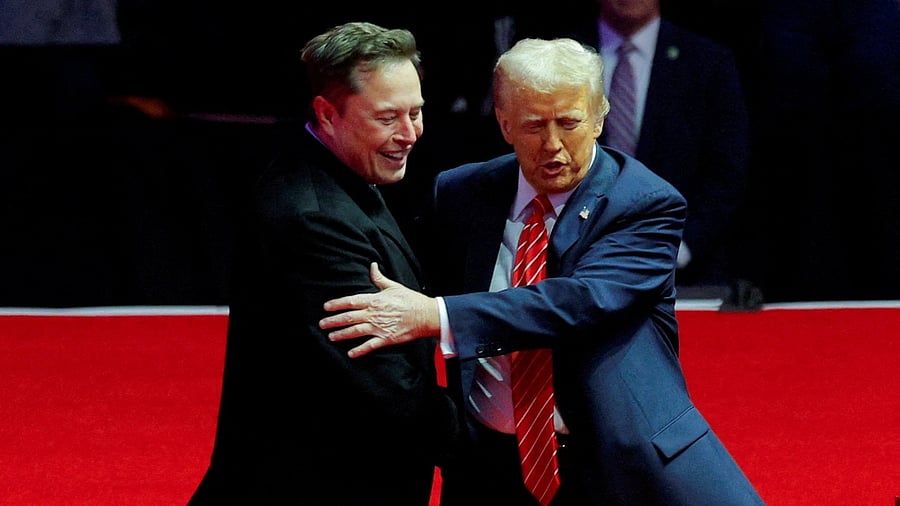
US President Donald Trump (R) and Tesla CEO and X owner Elon Musk (L).
Credit: Reuters Photo
The Time Magazine's latest print cover featuring Elon Musk seated at the Resolute Desk in the Oval Office drew a sarcastic comment from US President Donald who questioned the credibility of the magazine.
On being asked what he thought about TIME Magazine cover that has Elon Musk sitting behind his resolute desk, Trump reportedly remarked: "Is Time's Magazine still in business?"
The cover page shows Elon Musk seated at the presidential desk with a cup of coffee in hand with Presidential flags on the background. Sharing the post of the cover page on X, the magazine even wrote: "Inside Elon Musk's war on Washington."
"So far, Musk appears accountable to no one but President Trump, who handed his campaign benefactor a sweeping mandate to bring the government in line with his agenda. DOGE directed all of TIME’s questions about its work to the White House, which declined to comment," the magazine wrote in their article noting that: "No single private citizen, certainly not one whose wealth and web of businesses are directly subject to the oversight of federal authorities, has wielded such power over the machinery of the US government."
Trump came back to the presidency last month pledging to reduce the size of the federal government, and appointed Elon Musk to lead the effort at the helm of the newly created Department of Government Efficiency.
Musk and his DOGE team of mostly young men are part of a broader overhaul by Trump to remake the federal government and purge it of thousands of workers, including those Trump perceives as enemies or opposed to his conservative "America First" agenda.
Musk's efforts have alarmed Democrats and advocacy groups who say he is overstepping his authority by seeking to dismantle agencies responsible for critical government programs and fire federal workers en masse.
Meanwhile, a federal judge early Saturday temporarily blocked Musk's government efficiency team and Trump administration political appointees from accessing government systems used to process trillions of dollars in payments, citing a risk that sensitive information could be improperly disclosed.
(With Reuters inputs)
